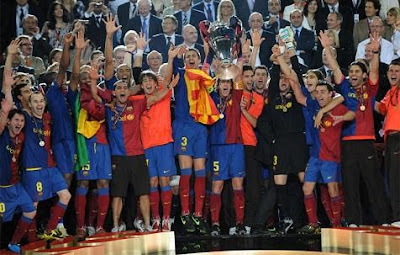
This Sunday, December 6, an exhibition of ceramics and sculptures by Jon Morgan Searle will be opened at the Casino de Algeciras in the plaza Alta. The event is to be inaugurated by Estanislao Ramirez Barjacoba who is the Presidente de la Asociación de la Prensa del Campo de Gibraltar. Jon’s works can be viewed from Monday to Thursday – 10.30 to 14.00 then 18.00 to 21.00.
Jon tells us that as a social psychologist he is well aware that from the depths of the brain, or as he likes to put it “when the lid is off the id” anything can happen. However he says social experiences and emotional awareness often lead an artist off in a particular direction.
There is no doubt that despite being born in a south western English village, growing up in Canada and then taking root on the Rock with a Gibraltarian wife, Lina Elena Danino, it has been his wanderings in Andalucía and Morocco that have consciously and unconsciously brought shapes, concrete and abstract to this artist’s mind and found interpretation through his hands. Being ambidextrous has been a great asset, particularly on the potter’s wheel.
Sculpture was Jon Morgan Searle’s first love in three dimensional art but in recent years he has been more and more seduced into ceramics, firstly with sculpted ceramic forms and now more and more so moving towards the world of the potter and his wheel.
In general terms all the art forms evolve from worked clay, on and off the potter’s wheel. This is followed by kiln firing at temperatures ranging from 700 to 1,300 degrees centigrade. At this point the treatments vary as explained on the individual piece descriptions at the exhibition.
Within the pure ceramic categories a very personalised style is that of combining two or more colours of clay on the wheel and once the work is fired to bisque, first firing, it is given a coat of matt, transparent glaze and re-fired. The result is a very honest, apparently simple, but most demanding art form as far as the creative ability contribution is concerned. The clay colouring can be seen repeated on both sides of the work.
Other works go from bisque firing to being glazed in their varying colours and textures and re-fired. The glaze can be simple or quite complex often with an over glaze being applied before a third firing at a lower temperature. The basic clay colour and texture always have a substantial influence on the final result.
Now you may be saying Searle, I know that name, and indeed you probably do. Another clue is the fact that his exhibition is being opened by the president of the Campo de Gibraltar press association. Yes Jon Searle was the editor of the Gibraltar Chronicle from 1966 to 1987 when he handed over to the late lamented Francis Cantos who died several months ago. In 1996 the GSD led by Peter Caruana became the government on the Rock and Francis became the chief minister’s press spokesman, a post he held to his death. In to the editor’s chair slipped Dominique Searle, Jon’s son, who holds that post till this day.
It was back in 1801 that the Gibraltar Chronicle was first published and it celebrated its 200 th anniversary in 2001. Perhaps its ultimate claim to fame was in 1805 with the scoop that Admiral Lord Nelson had died at the Battle of Trafalgar – tragic news that did not reach London for another week.
In the bi-centenary edition Dominique Seale wrote: “Unlike Charles Bouisson, the first editor, the Chronicle today does not seek to report the military triumphs of the empire but rather to reflect the evolving vibrancy of the Gibraltarian community as it moves towards closing the last chapter of those imperial and colonial days of old with good, open and accessible debate.
“The Gibraltar Chronicle is an institution, but a live one. It talks to and listens to all sides, but the local community including the minorities living here, are at its heart.”
What is certain is that when the Chronicle celebrates its next key anniversary the editor of that time will celebrate the major contribution that two generations of Searle’s have made to this august organ. In the meantime call in to Jon’s exhibition where his ceramics and sculpture speaks louder than words.
(The above article was published in today's Costa del Sol News)
 As the bells in the Puerta del Sol in Madrid chime midnight on New Year’s Eve those gathered in the square and watching TV throughout Spain will down 12 grapes – hopefully before the chimes finish. The same scene will be replicated throughout the nation in city, town and village plazas, at parties indeed wherever celebrations are held. But why?
As the bells in the Puerta del Sol in Madrid chime midnight on New Year’s Eve those gathered in the square and watching TV throughout Spain will down 12 grapes – hopefully before the chimes finish. The same scene will be replicated throughout the nation in city, town and village plazas, at parties indeed wherever celebrations are held. But why?









